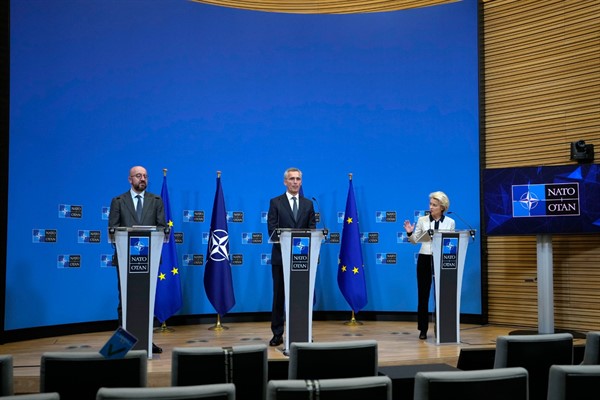European Union leaders are converging on Brussels today for yet another emergency summit on Ukraine, the second in a week. European Council President Charles Michel called for the meeting yesterday in order to get the bloc’s leaders on the same page ahead of a new round of EU sanctions against Russia. And overnight, Russia’s full-scale invasion of Ukraine made further sanctions a certainty. A first round of sanctions against Moscow had already been officially adopted yesterday in response to Russian President Vladimir Putin’s deployment of troops into two breakaway regions of eastern Ukraine earlier this week.
The first round of EU sanctions slapped on Moscow mirrors that adopted in Washington. They include targeted measures against individuals and entities closely linked to the decision to deploy Russian troops into Ukraine, including Russian Defense Minister Sergei Shoygu and all 351 members of the Duma, the lower chamber of Russia’s parliament. They will be barred from entering all EU countries, and their assets in the bloc will be frozen. There is also a ban on any commercial activity with business entities in the breakaway regions of Donetsk and Luhansk, whose independence Putin recognized. Furthermore, the Russian government and the Russian Central Bank will be cut off from access to finance on EU capital markets.
Separately, German Chancellor Olaf Scholz made the surprise announcement Tuesday that he is suspending the certification of the Nord Stream 2 natural gas pipeline between Russia and Germany. Scholz had long resisted making an unequivocal commitment to halting progress on the pipeline in the event of a full-scale invasion of Ukraine, even in the face of pressure from Washington. So his decision to put Nord Stream 2 on ice following Putin’s recognition of the separatist Ukrainian regions came as a surprise to domestic and international observers. Shortly afterward, U.S. President Joe Biden announced that the U.S. will place sanctions on the Gazprom-owned company that built the pipeline.

